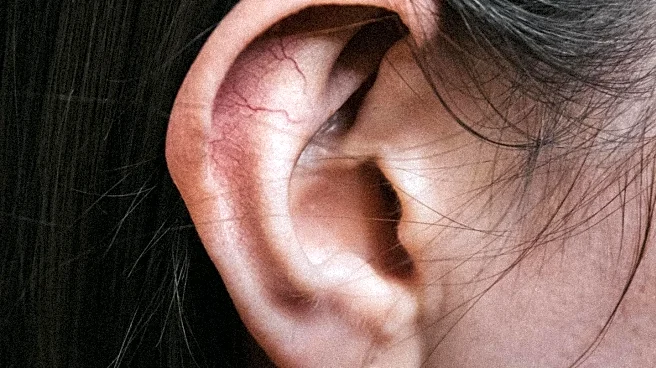What's Happening?
An advice column addresses the complexities of grief and hearing loss, offering guidance to individuals facing these challenges. The column features a letter from a reader who feels isolated after being 'ghosted' by a long-time friend following the friend's husband's death. The columnist explains that grief can be isolating and suggests maintaining a supportive presence to preserve the friendship. Additionally, the column discusses hearing loss, advising readers to use different words rather than repeating the same ones louder, as certain sounds can be difficult to distinguish for those with hearing impairments.
Why It's Important?
The advice provided in the column is significant as it sheds light on the emotional and social challenges associated with grief and hearing loss. Understanding these issues can improve communication and empathy in personal relationships, particularly for those supporting friends or family members experiencing loss. The guidance on hearing loss is crucial for enhancing the quality of life for individuals with hearing impairments, emphasizing the importance of effective communication strategies. These insights can foster more inclusive and supportive environments in social and familial settings.
What's Next?
Readers are encouraged to apply the advice in their interactions with grieving friends and those with hearing impairments. The columnist suggests maintaining a presence in social interactions to rebuild relationships affected by grief. For hearing loss, the advice encourages using varied language and enunciation to improve communication. These steps can lead to stronger, more understanding relationships and potentially inspire others to seek professional help for hearing issues.
Beyond the Headlines
The column touches on deeper implications of grief and hearing loss, highlighting the need for patience and understanding in relationships. It suggests that grief can alter perceptions and interactions, requiring adaptability from friends and family. The advice on hearing loss underscores the importance of awareness and sensitivity in communication, which can prevent frustration and enhance mutual understanding. These insights contribute to broader discussions on mental health and accessibility, promoting empathy and inclusivity.










